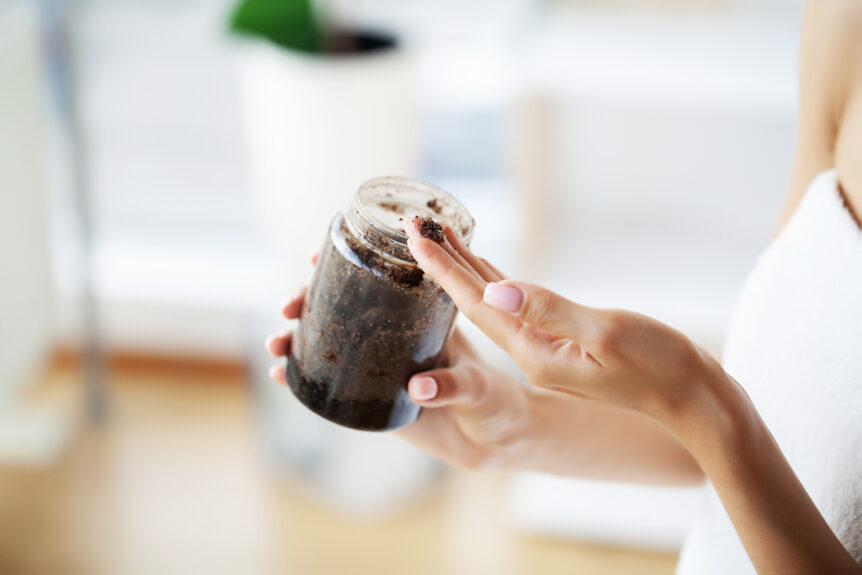
Turning Trash into Treasure
The practice of alchemy held the belief that base metals could be transformed into gold. The ability to take trash and to alter it in such a way that you create other items of higher value. If the process itself is sustainable then you have also created a circular economy. Grounds for Good are a local business that have been practising some coffee alchemy of their own. Here are some of their tips on upcycling waste coffee grounds.
Ahhh…coffee! As a nation we love it, but we need to start thinking imaginatively about how to divert this valuable food waste from ending up in the rubbish bin. If you don’t generate grounds at home, there are plenty of local coffee shops that would be more than happy to give you some to play with.
Coffee grounds in the garden
There’s a lot of debate about whether waste coffee makes good compost but take it from us: they do! Coffee grounds are rich in nitrogen and add valuable organic matter to the mix. When incorporated into the compost, they contribute to nutrient-rich soil and improve moisture retention. With this approach, you can effectively recycle coffee grounds while benefiting your garden. You garden will love you for it.
Coffee grounds in the house
Did you know that coffee grounds can help absorb and eliminate odours? Trying placing a bowl of dried coffee grounds in your fridge or freezer to neutralize any strong odours lurking in there. You can also fill old socks or tights with dried coffee grounds and tie them off to make portable air fresheners. Then, place these in your shoes, gym bag, bedroom drawers, under your car seat, or anywhere else that may need some deodorising. Once they lose their potency, just sprinkle in your garden. You can even keep coffee grounds by the sink and use them to scrub your hands after chopping garlic, onions, or fish. The grounds will help remove the smell from your hands, and give you soft hands too!
Coffee grounds in skincare
Waste coffee grounds can act as a natural exfoliant and makes for the perfect homemade body and face scrub, but only if you don’t have sensitive skin. Just make sure that the grounds are fresh. You can even dry them before using, as any residual water will create a medium of microbes to thrive in and reduce the scrub’s shelf life.
A basic recipe for a scrub below but don’t be afraid to experiment with the ratios! For the base, many choose coconut oil, but we favour locally-sourced organic rapeseed oil. You can then add essential oils to provide your favourite scents and added skin benefits.
Homemade coffee body scrub
What you’ll need:
- 50g of fresh spent coffee grounds
- 100g of base oil, like coconut oil
- 4-6 drops of your favourite essential oils
Method:
- Mix all ingredients well together
- Store the mixture in a sterilised jar
- Store this in the fridge, but get it to room temperature between uses (especially for coconut oil as this will solidify at cold temperatures).
- Apply a good dollop to damp skin and massage gently, especially over areas like elbows and knees.
- Allow the mixture to soak into the skin for several minutes before rinsing off.
Note: As with every skincare product, try a patch test to see how your skin reacts, and avoid using the scrub on sensitive areas such as your face.
Exfoliation is something we should all do once, even twice a week. It helps shed dead skin cells and the massaging itself increases blood flow, leaving glowing, more youthful-looking skin.








